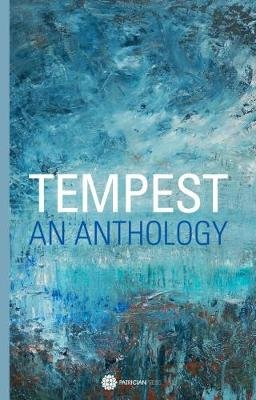
Tempest (ed. Anna Vaught and Anna Johnson) is a new anthology from Patrician Press themed around the current ‘tempestuous’ political climate. It brings together fiction, non-fiction and poetry; as I’m more of a fiction reader, I’m going to highlight a few of my favourite stories.
‘The wall’ by Emma Bamford is a good example of how voice can shape a story. It’s narrated by a builder talking to his mates down the pub (“Lord, can’t a man get a bit of peace with his pint of an evening after a hard day’s labour? If I tell you, will you leave me be?”). The story his friends are so keen to hear concerns the time he was invited to America to work on a new border wall, and it didn’t work out quite as anticipated. The homely narrative voice does just enough to push the tale to one side of reality (it’s a voice that doesn’t belong in the situation it’s describing), without losing sight of the seriousness beneath.
Some of the stories in Tempest work as evocative snapshots of a strange new world, and allow the reader’s imagination to fill in the details. ‘The carp whisperer’ by Petra McQueen and Katy Wimhurst takes us to a highly stratified world of water shortages. The protagonist is mistaken for someone who can talk to – and maybe even shapeshift into – carp. All this comes together into a striking final image of rebellion.
Justine Sless’ ‘Tempest on Tyneside’ is another of these strange snapshots. In a country beset by storms and prone to flooding, everyone is still heading to the North East for the football. But first a visitor, Miranda, has to work out the underlying geology and make sure its safe. I think that’s what she is doing, anyway; I must admit, I didn’t grasp everything that’s going on in this story. Still, it doesn’t matter to me, not when there’s such spectacle to fill the mind as the image of hundreds of football supporters on bikes descending on a brightly lit stadium while a storm rages at sea.
‘Fenner’ by Suzy Norman is a poignant tale of trying to move on after loss. It is ten years since the narrator’s musician husband, Ray, died, and now Dewi, a film-maker, wants to make a tribute to him. The narrator accepts Dewi’s request for an interview, but this stirs up old memories and brings change to the old house she shared with Ray. Norman’s writing carefully illuminates the very beginning of a new future for the protagonist.
Book details
Tempest: an Anthology (2019), ed. Anna Vaught and Anna Johnson, Patrician Press, 178 pages, paperback.
Recent Comments